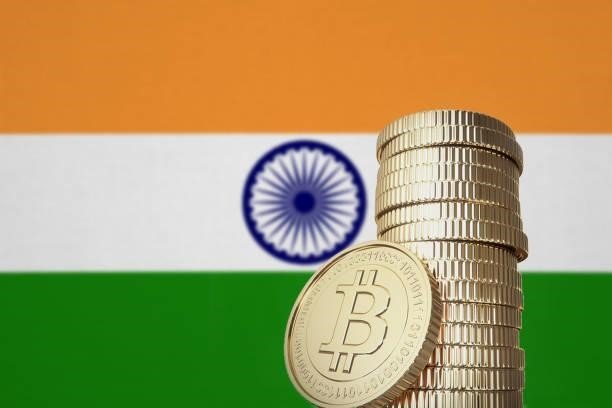The Reserve Bank of India, working together with the Ministry of Finance, continued to issue press releases warning the general public to avoid dealing in cryptocurrencies.
Introduction
Around 2009, Bitcoin made its entry into India, making it the first cryptocurrency available in the country. Soon after in 2013, the first cryptocurrency exchanges were established. These included Bitxoxo, CoinSecure, Koinex, and Pocket Bits. These exchanges have made it possible for investors to buy polkadot among other digital currencies. The value of digital coins has continued to grow over the past few years and has amassed significant interest in India.
Cryptocurrencies have become increasingly popular due to several factors including India’s foremost position in internet adoption, its booming tech industry and the growing number of tech-savvy millennials. However, as early as 2013, the Reserve Bank of India alerted the public to the dangers of procuring virtual currencies, including Bitcoin. These sentiments were not heeded by the citizens, especially when high-value currency notes were demonetized in 2016.
India’s role in the crypto market
In recent years, India has become one of the most active markets in the cryptocurrency space. Several research studies indicate that India has more than 60% of the world’s crypto owners and is ranked second in adoption rates. Over 15 million retail investors in India have included crypto in their portfolios since 2014. The country also benefits from a robust institutional presence in this space with nearly 230 start-ups.
It is imperative that institutions and regulators alike educate the public about the benefits cryptocurrencies offer to the Hindu community in order to gain acceptance and ground. India will then have the potential to be a global leader in this space if the ecosystem continues to grow in the same direction.
Is cryptocurrency banned in India?
The Reserve Bank of India, working together with the Ministry of Finance, continued to issue press releases warning the general public to avoid dealing in cryptocurrencies. In a circular released on April 6, 2018, the RBI forbade Payment System Providers, Commercial Banks, and Small Finance & Cooperative Banks from dealing with virtual currencies. They were also not to conduct business with businesses that dealt with cryptocurrencies.
As a result of the restriction imposed by RBI, the Internet and Mobile Association of India (IMAI) filed a petition questioning the legality of the circular. The Supreme Court set aside the circular as it found it unreasonable. While the government is proactively regulating cryptocurrencies, it also acknowledges the potential economic benefits that virtual currencies could offer.
Introduction of e-Rupee
As a way to reduce the country’s dependence on traditional currency, the Finance Minister introduced the Digital Rupee based on blockchain technology. The Reserve Bank of India launched a pilot project for the wholesale market on November 1. In a month’s time, a second pilot project will commence, this time targeting retail use of the digital rupee.
Digital rupees are the RBI’s preferred form of cryptocurrency. Since the CDBC is an electronic form of a sovereign currency, it is regarded as safer than private coins. Cryptocurrencies will continue to be traded as the government imposes a 30 per cent tax on virtual assets. This has set the stage for cryptocurrencies to become accepted as an asset class.
Popularity Among Millennials and Gen Z.
This is a hot sector for millennials and Gen Z due to their lack of trust in banks and financial institutions, high-risk tolerance, and their ability to access information online. Millennials from India’s rural and semi-urban cities are quickly embracing crypto. 66% of all users are still under the age of 35 indicating that crypto is becoming increasingly popular among the youth.
As they offer lower transaction costs than traditional remittance services, virtual currencies have the potential to give India’s youth financial freedom, enabling them to access credit and other banking services regardless of their income or social standing.
What is the RBI’s Opinion?
The Reserve Bank of India has been opposed to cryptocurrencies from the outset. Governor Shaktikanta Das has on several instances stated that cryptocurrencies are dangerous to a country’s economy. In her statement, Nirmala Sitharaman said the RBI has recommended that cryptocurrencies be banned. She also advised the Ministry that virtual currencies cannot be considered legal tender since they are not issued by the bank.
As part of its efforts to establish a regulatory presence in the crypto space, the RBI may look into using blockchain infrastructure. It may also issue licences to crypto exchanges after establishing they are meeting all compliance requirements.
Final Words
As blockchain experts note, crypto-related businesses are moving overseas to operate in less complicated regulatory environments. Indian corporations are leaving to set up shop in crypto-friendly countries. WazirX founders have moved to Dubai, as have Polygon’s founders. Over 40% of blockchain clients have moved out of India, and Malta and Singapore are the preferred destinations.
This field requires a risk-based regulatory framework that must be developed after inputs from stakeholders, market participants and regulatory agencies. This vision will ensure that cryptocurrencies will have a bright future in India and will continue to progress in the coming years.







